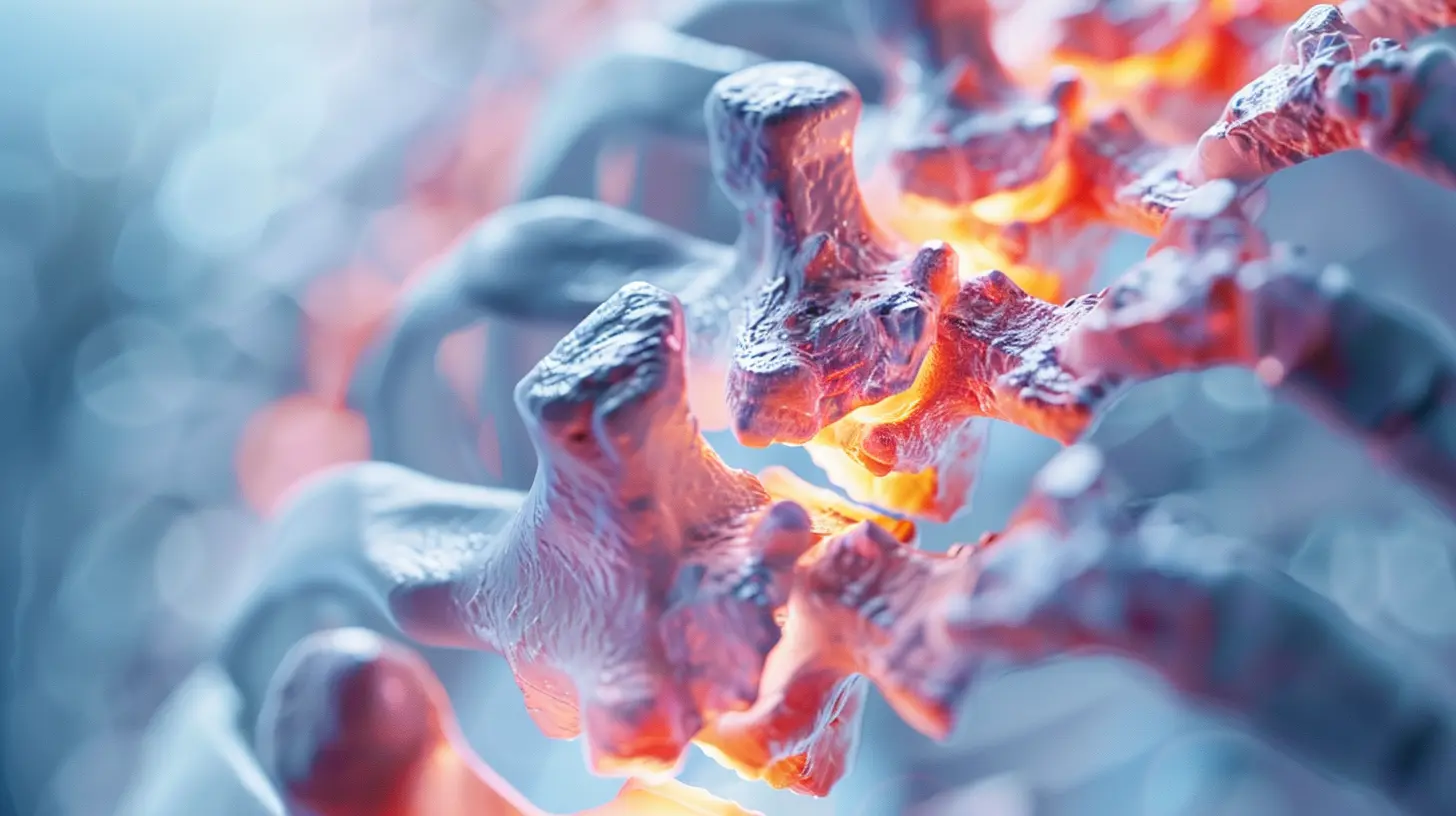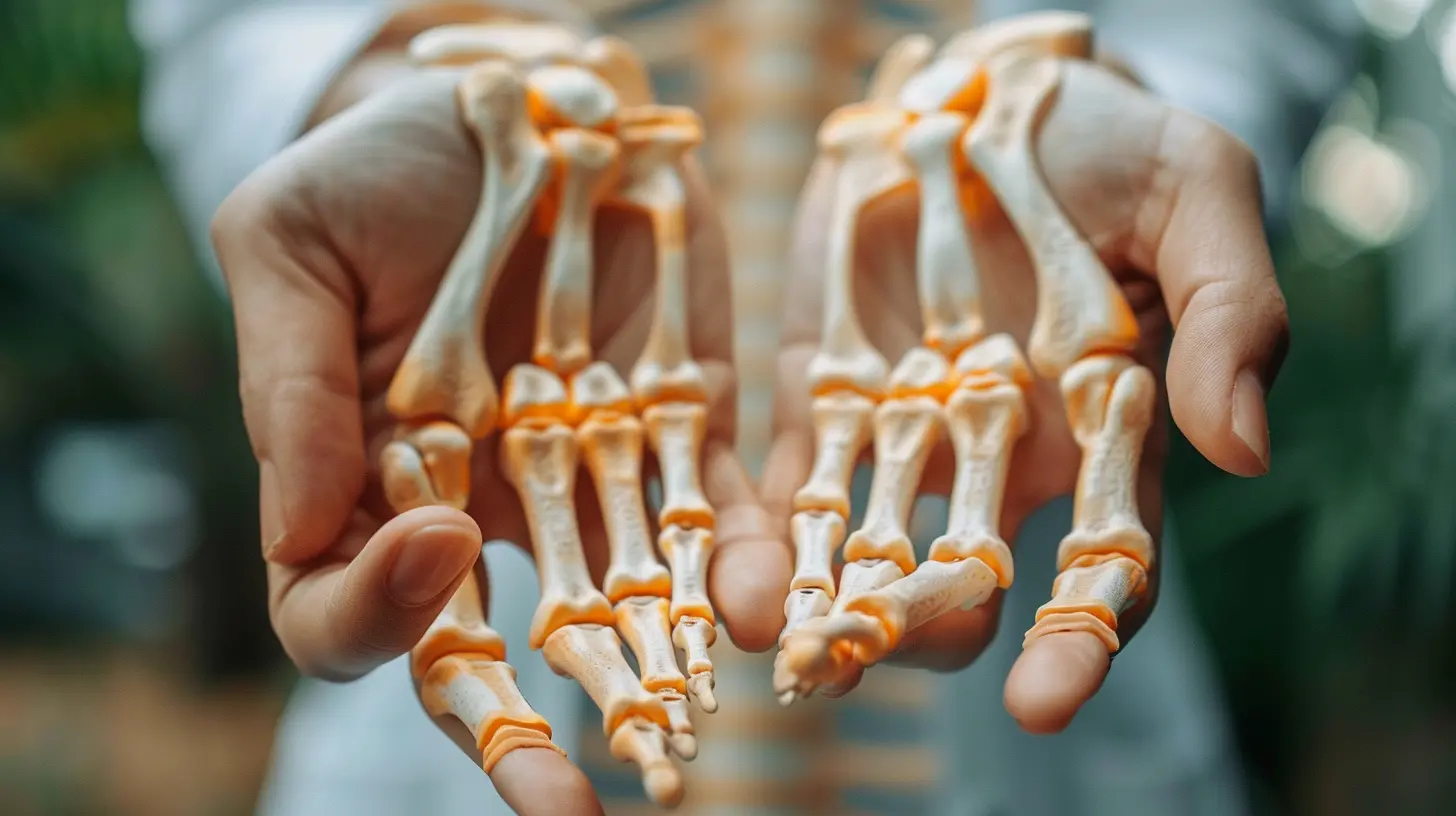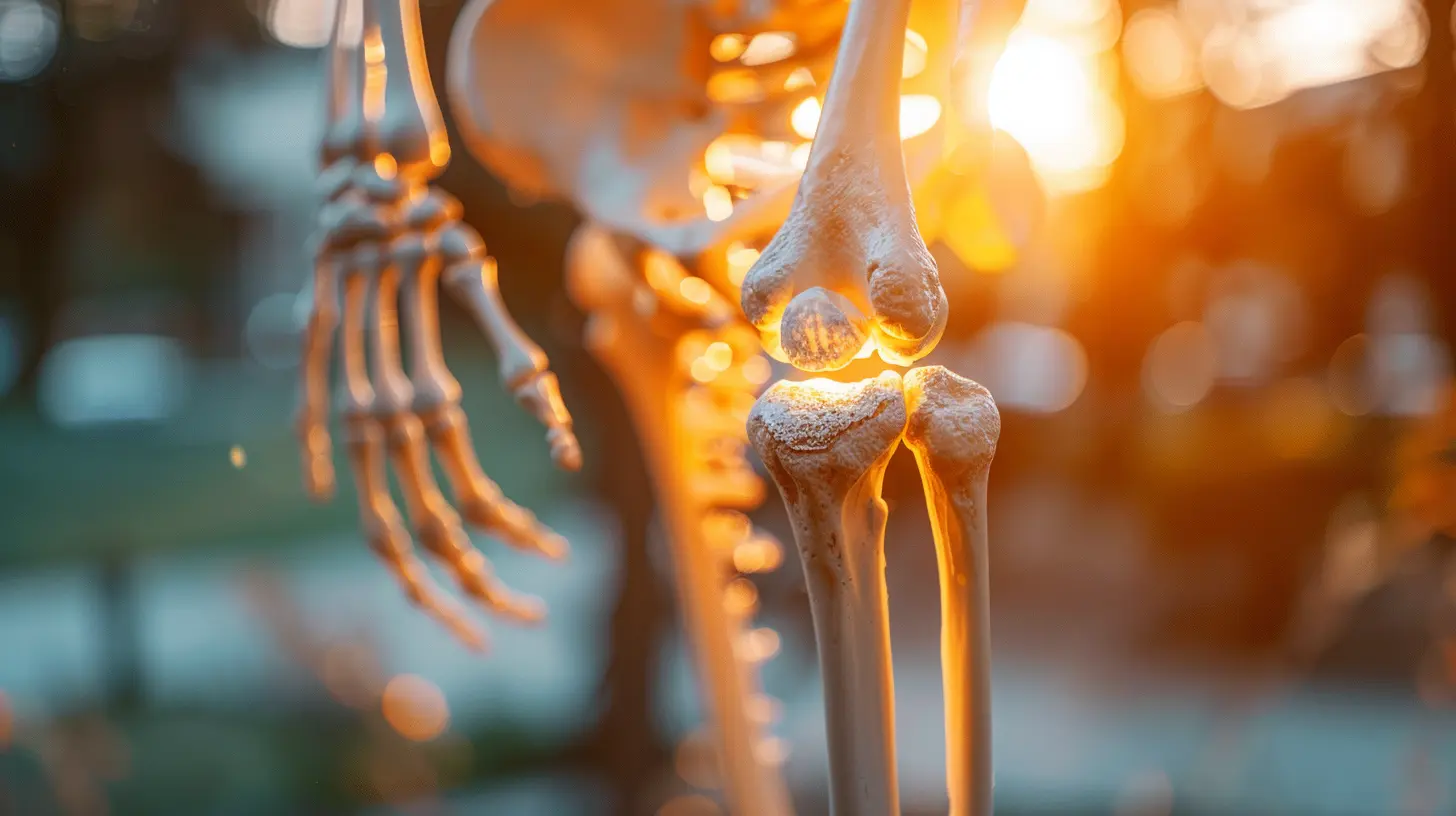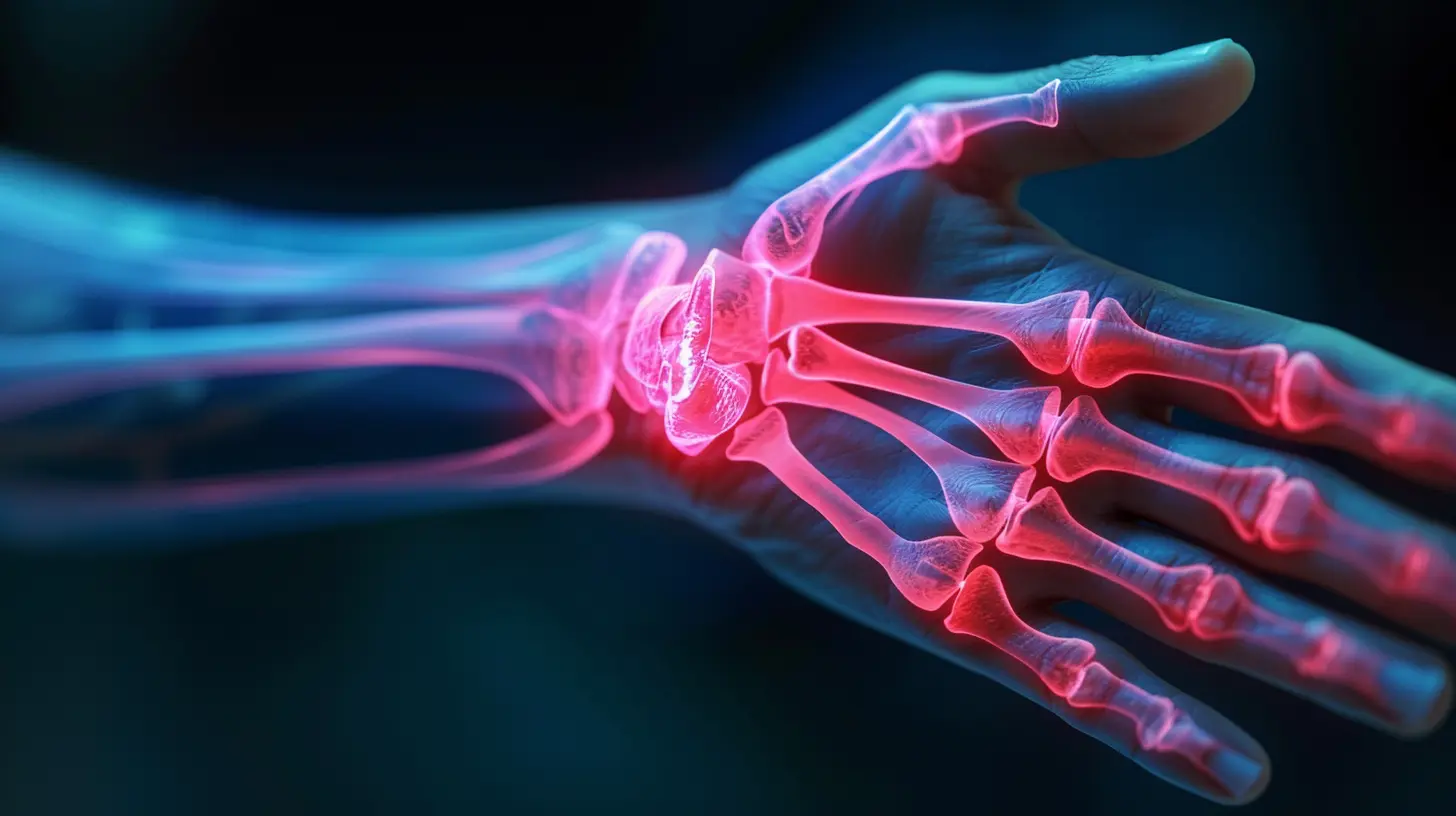How to Support Bone Healing After a Fracture
21 May 2025
Breaking a bone is no joke. The pain, the immobility, and the long road to recovery can be frustrating. But here’s the good news—you can take charge of your healing process! While your body naturally works to mend the fracture, there are plenty of ways to speed things up and ensure your bones heal strong.
In this guide, we’ll walk through everything you need to know about supporting bone healing after a fracture. From nutrition to lifestyle changes, let's get you back on your feet faster and stronger than ever! 
Understanding the Bone Healing Process
Before diving into the ways to support healing, it's essential to understand how bones repair themselves. When a bone breaks, your body jumps into action with a four-phase healing process:1. Inflammatory Phase (First Few Days)
Right after the fracture, your body initiates inflammation to clean up damaged tissue and send healing signals. Swelling, pain, and bruising are common.2. Soft Callus Formation (Week 1-3)
Cells called chondroblasts create cartilage around the fracture, forming a soft callus that holds the bone together. This phase is crucial for the initial stability of the broken bone.3. Hard Callus Formation (Week 4-8)
The soft callus begins to mineralize and harden, turning into new bone tissue. This makes the fracture site stronger, but it's still fragile.4. Bone Remodeling (Months to Years)
Over time, the newly formed bone is shaped and strengthened to match the original structure. This phase ensures the bone regains its full strength.Now that we know how bone healing works, let's dive into how you can support this natural process! 
Essential Nutrients for Bone Healing
Your body needs the right building blocks to repair bones efficiently. Here are some key nutrients that play a major role in the healing process:1. Calcium – The Foundation of Bone Health
Calcium is the main component of bones. Without enough calcium, your body struggles to rebuild strong bone tissue.Sources of Calcium:
- Dairy products (milk, cheese, yogurt)
- Leafy greens (spinach, kale, collard greens)
- Almonds
- Fortified plant-based milk
2. Vitamin D – The Calcium Absorber
Your body can't properly absorb calcium without vitamin D. This vitamin acts like a gatekeeper, helping bones get the nutrients they need.Sources of Vitamin D:
- Sunlight (15-30 minutes a day)
- Fatty fish (salmon, tuna, mackerel)
- Egg yolks
- Fortified cereals and milk
3. Protein – The Bone Builder
Bones aren’t just made of minerals; they also contain collagen, a protein that provides structure and flexibility. Without enough protein, bone healing slows down.Sources of Protein:
- Lean meats (chicken, turkey, beef)
- Dairy products (Greek yogurt, cheese)
- Legumes (beans, lentils)
- Nuts and seeds
4. Vitamin C – Collagen Production Booster
Vitamin C supports collagen formation, which is a critical component of new bone. It also has anti-inflammatory properties that aid healing.Sources of Vitamin C:
- Citrus fruits (oranges, lemons, grapefruits)
- Bell peppers
- Strawberries
- Broccoli
5. Magnesium – The Bone Strengthener
Magnesium helps convert vitamin D into its active form, ensuring calcium is used effectively for bone repair.Sources of Magnesium:
- Nuts and seeds (almonds, sunflower seeds)
- Whole grains (brown rice, quinoa)
- Dark chocolate (yes, really!)
6. Zinc – The Wound Healer
Zinc plays a vital role in cell growth and tissue repair, both of which are crucial for bone regeneration.Sources of Zinc:
- Meat (beef, pork, lamb)
- Shellfish (oysters, crab, shrimp)
- Pumpkin seeds
- Legumes 
Lifestyle Factors That Speed Up Bone Healing
Food alone won’t do all the heavy lifting—your lifestyle habits matter just as much. Here’s how you can optimize healing:1. Avoid Smoking and Alcohol
Smoking reduces oxygen flow to your tissues, slowing down healing. Alcohol, on the other hand, interferes with calcium absorption and bone formation. Cutting them out, at least during recovery, can make a huge difference.2. Get Enough Sleep
Your body does the most repairing while you sleep. Aim for 7-9 hours of quality sleep per night to allow for proper tissue regeneration.3. Stay Active (But Don’t Overdo It!)
While complete rest is essential in the early stages, gentle movement (as advised by your doctor) promotes blood circulation and speeds up healing. Once you're cleared, simple exercises like walking or stretching can help prevent stiffness.4. Keep a Healthy Weight
Being underweight can deprive your body of vital nutrients, while excessive weight puts extra stress on healing bones. Aim for a balanced diet to maintain an optimal body weight.5. Stay Hydrated
Water plays a huge role in transporting nutrients to your bones and flushing out toxins. Dehydration can slow down healing, so aim for at least 8 glasses of water daily.
Natural Remedies and Supplements for Faster Recovery
In addition to food and lifestyle changes, some natural remedies and supplements can enhance bone healing.1. Bone Broth for Collagen Support
Homemade bone broth is packed with collagen, amino acids, and minerals essential for bone growth. Sipping on warm bone broth can support recovery naturally.2. Herbal Remedies (Turmeric & Ginger)
Both turmeric and ginger have powerful anti-inflammatory properties. Adding them to your diet can help reduce swelling and improve recovery speed.3. Omega-3 Fatty Acids
Omega-3s, found in fish oil and flaxseeds, help reduce inflammation and support bone repair. If you don’t eat much fish, consider taking a high-quality omega-3 supplement.4. Vitamin K2 Supplements
Vitamin K2 helps transport calcium to bones instead of letting it settle in arteries. Sources include fermented foods like natto and certain cheeses, or you can take K2 supplements.When to See a Doctor
While most fractures heal over time, there are warning signs that indicate you may need medical attention:- Severe pain that doesn’t improve
- Swelling or redness that worsens
- A fever (sign of infection)
- Numbness or tingling near the fracture
- The bone isn’t healing after several months
If you notice any of these, don’t hesitate to contact your doctor!
Final Thoughts
Supporting bone healing isn’t just about waiting for time to do its thing. By fueling your body with the right nutrients, making smart lifestyle choices, and avoiding harmful habits, you can help your bones heal faster and stronger.Remember, healing is a process, and patience is key. Stay consistent with healthy habits, listen to your doctor, and soon enough, you’ll be back to your active life, good as new!
all images in this post were generated using AI tools
Category:
Bone HealthAuthor:

Holly Ellison
Discussion
rate this article
3 comments
Marigold Ortiz
Thank you for sharing these valuable insights! Your tips on nutrition and activity for supporting bone healing are incredibly helpful and will surely benefit many recovering from fractures.
June 15, 2025 at 4:56 PM

Holly Ellison
Thank you for your kind words! I'm glad you found the tips helpful. Wishing everyone a smooth recovery!
Elizabeth Hudson
Feed your bones like they're training for a marathon!
May 28, 2025 at 4:48 PM

Holly Ellison
Great analogy! Nourishing your bones with the right nutrients is crucial for optimal healing, just like athletes fuel their bodies for peak performance.
Drift Snow
Strong bones, strong spirit! Your healing journey starts today!
May 25, 2025 at 3:19 PM

Holly Ellison
Thank you! Yes, nurturing both body and spirit is essential for a successful healing journey.



